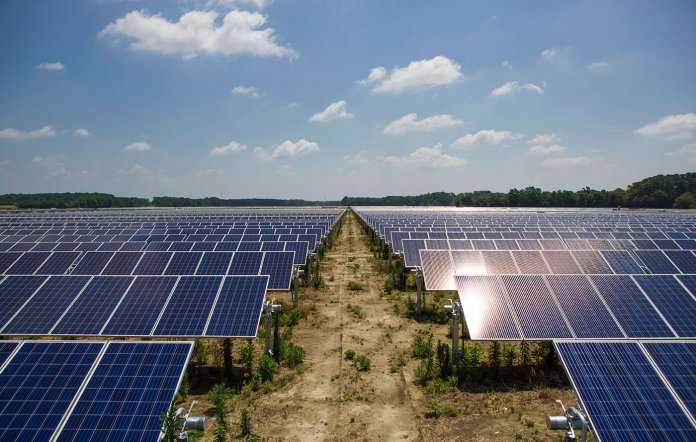Lots of ‘renewable’ alternatives for energy consumers, but why are so handful of them any good?

Virginia residents who want to do best suited by the earth are met with a bewildering selection of renewable strength and “green power” alternatives. Unfortunately, handful of these programs essentially deliver renewable energy. Individuals who wish the gold normal - electricity from latest wind and solar tasks - are entirely out of good luck if their utility is normally Dominion Strength Virginia or Appalachian Power.
To understand how there may be so many choices and none of them good, we first need to talk about renewable strength certificates. RECs certainly are a issue that is a lot more interesting than it sounds because - well, it would need to be, wouldn’t it? RECs happen to be how exactly we know that some electricity could be related to a renewable source. If you wish to know what kind of renewable strength your utility is buying, or if you yourself want to buy renewable energy, RECs subject.
RECs aren't electricity; they aren’t possibly real certificates. These were conceived of as an accounting program enabling a computer program to show it is in compliance with circumstances mandate to contain a share of renewable energy in its blend. A computer program amasses RECs associated with its individual renewable generating sources, or buys them from renewable options it doesn’t individual, and “retires” them showing compliance with regulations. Since RECs are different from the electric power itself, they can be bought and marketed independently. There is actually an online marketplace for your REC purchasing convenience.
RECs are also how voluntary clients of renewable energy, want customers of Arcadia or Dominion’s Green Power System, know they’re actually buying what they purchase -assuming they recognize that what they purchase isn't actually energy, and could haven't any relationship to the power powering their home or business. If you acquire RECs, you remain using whatever electric power your utility provides, but you are as well paying a premium together with your regular bill.
There is absolutely no nationwide, generally accepted definition of “renewable energy,” just as there is absolutely no definition of “natural” in food labeling. In Virginia, there exists a state legislation defining what matters as renewable, and it offers not merely solar, wind and hydro, but also a variety of burnable fuels like biomass and municipal sturdy waste products that foul the air flow and donate to climate change. Buyer beware!
The Virginia Clean Market Act narrowed the list of sources that Dominion and APCo may use to meet up the law’s new renewable portfolio standard, and in addition limited the places of qualifying facilities. After 2025, happily, the majority of the RECs retired by Dominion and APCo under the VCEA should come from Virginia wind and solar conveniences.
But crucially, the VCEA didn’t change this is of renewable strength in the code. Dominion won’t be able to employ RECs from its biomass plant life to meet up the VCEA, nonetheless it can still offer them to anyone else and label the merchandise “renewable” without dropping afoul of regulations. Anyone investing in a renewable energy merchandise from Dominion acquired better check the set of ingredients.
It’s not simply Dominion. Anyone buying RECs from Arcadia or anywhere else should have a look at what they are getting, and ask themselves if the amount of money they spend means innovative renewable strength will be added to the grid.
The answer is most likely no. If the RECs result from a wind farm in Texas or Iowa, the electricity from those turbines doesn’t feed into the grid that acts Virginia, and that means you can’t also pretend it is powering your property. It also doesn’t mean anyone made a wind farm due to REC buyers like you. Wind energy has already been the cheapest type of new strength in the central portion of the U.S. People build wind farms because they are profitable, not because they are able to sell RECs. Actually, those wind farms will be swimming in surplus RECs, because claims in the center of the united states don’t have renewable strength mandates to create their own utilities buy them.
For that subject, a whole lot of RECs come from facilities which were built before the idea of RECs even existed. Hundred-year-previous hydroelectric dams can sell RECs; thus can fifty-year-previous paper mills that offer biomass RECs from burning up wood.
With this background, let’s consider the offerings obtainable in Virginia and see which are worth paying even more for.
Previous Story
- Tesla shifts battery chemistry for utility-scale storage Megapack
- Biden Pushes Offshore Wind Ability, But California May...
- Clean Energy Alliance talks energy rates, power supply...
- 3 Absurdly Cheap Clean Energy Stocks
- Sunrun sets brand-new quarterly and total annual residential...
- GE subsidiary to apply AI for wind electric...
- 'Bangladesh needs to address the widening monetary gap...
- Bangladesh: The Rising Economic Power